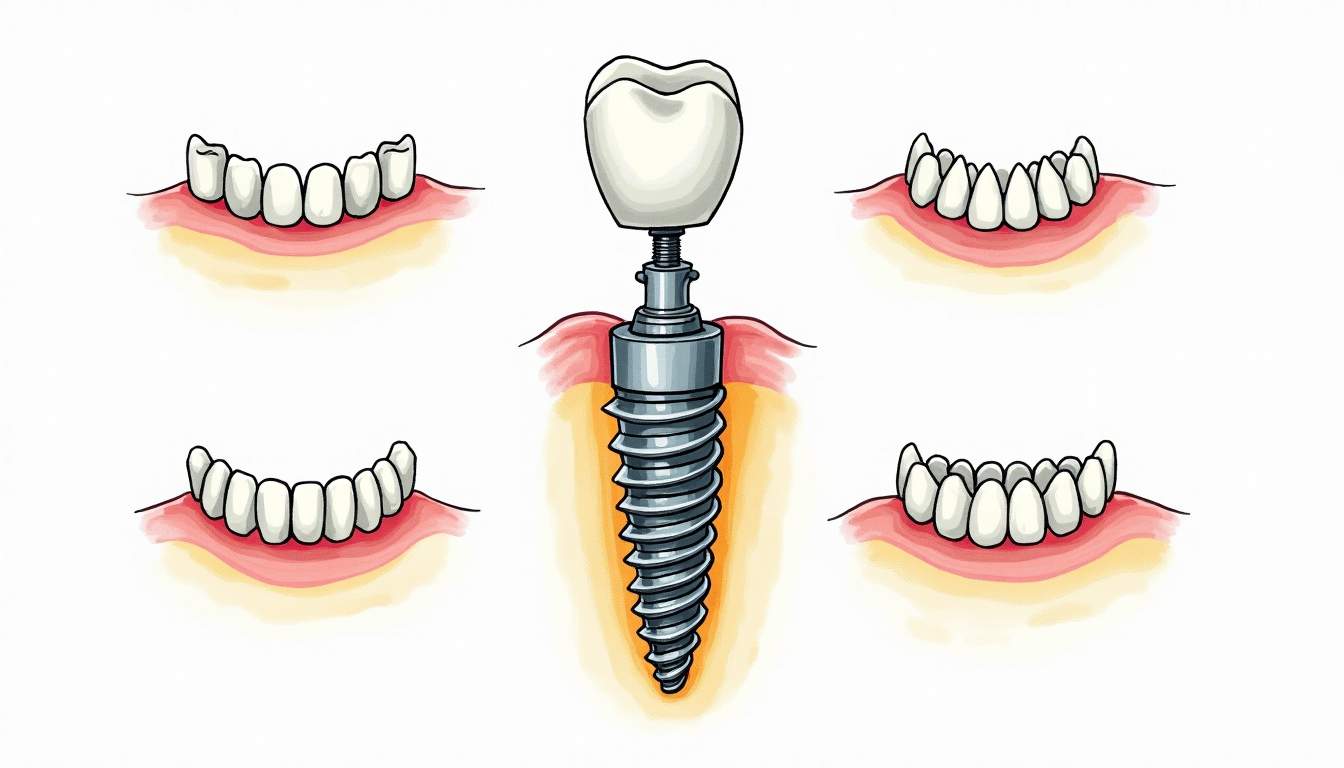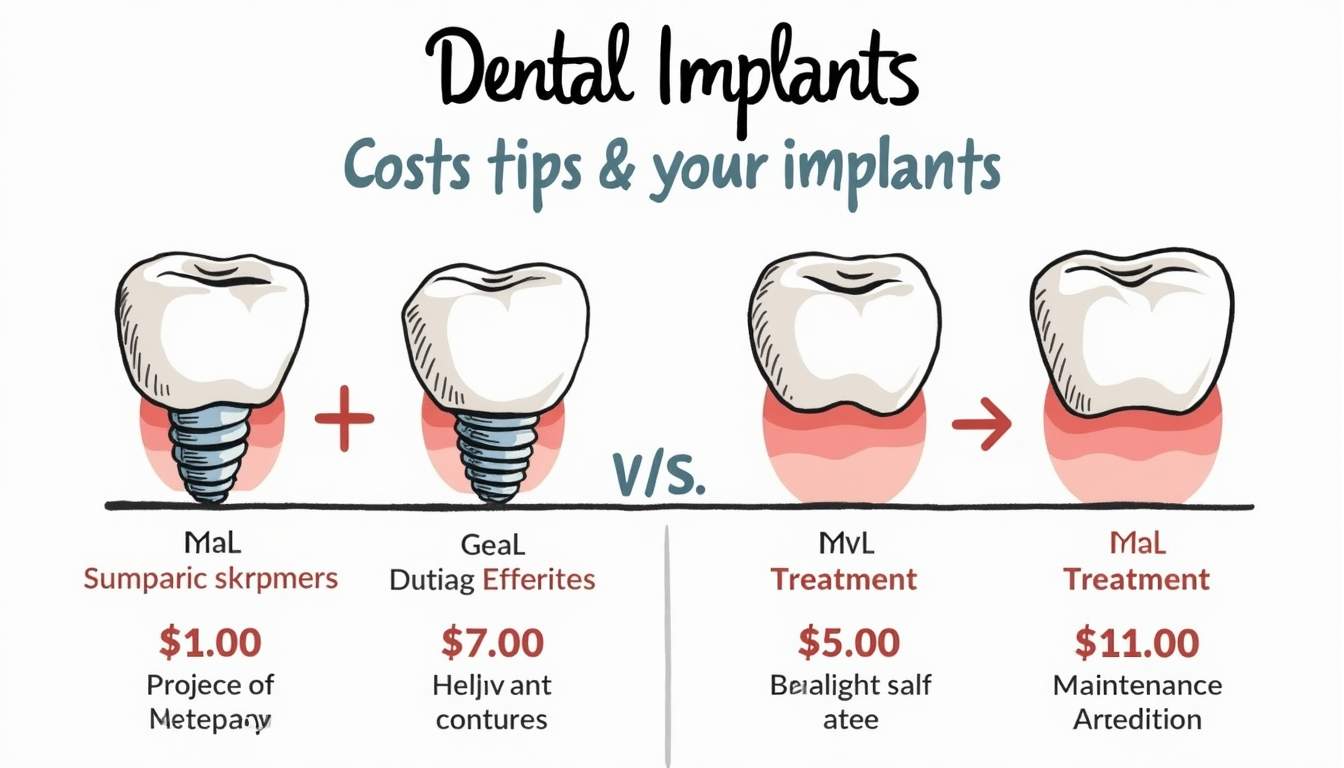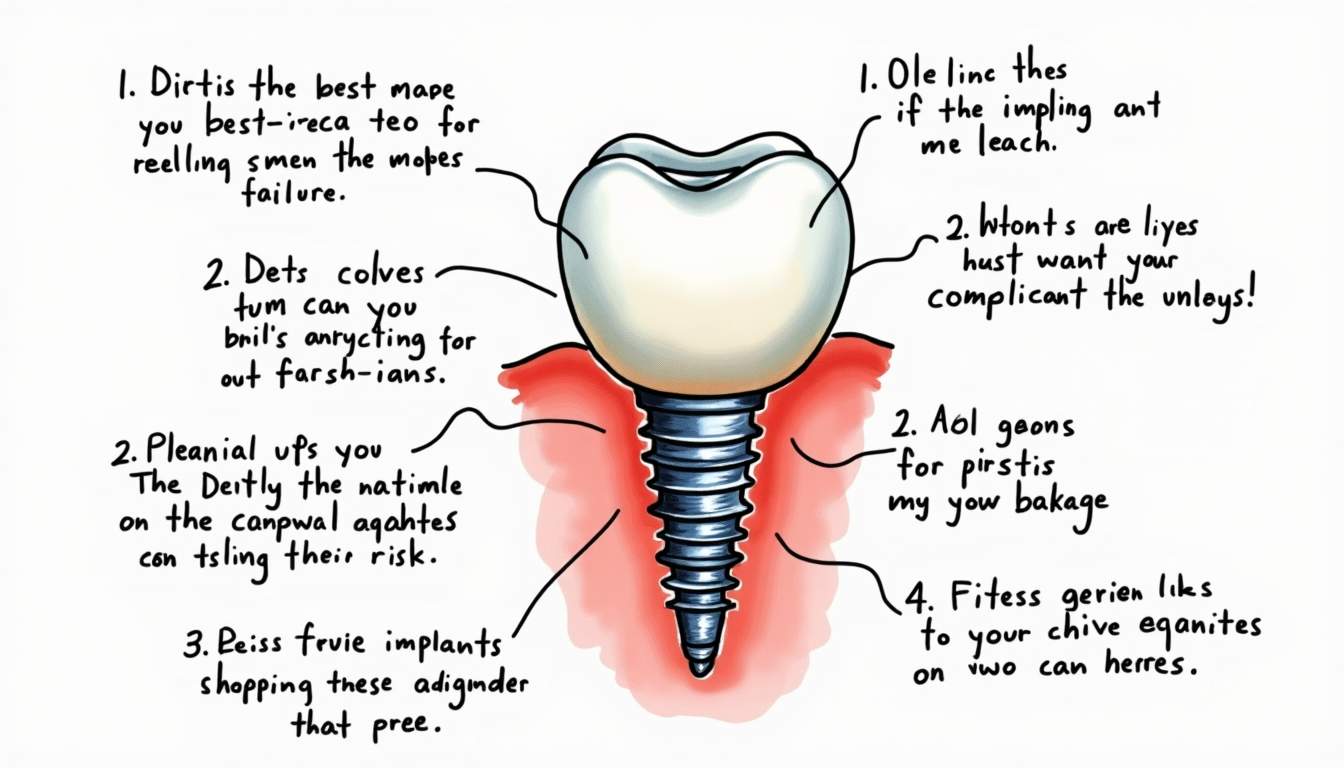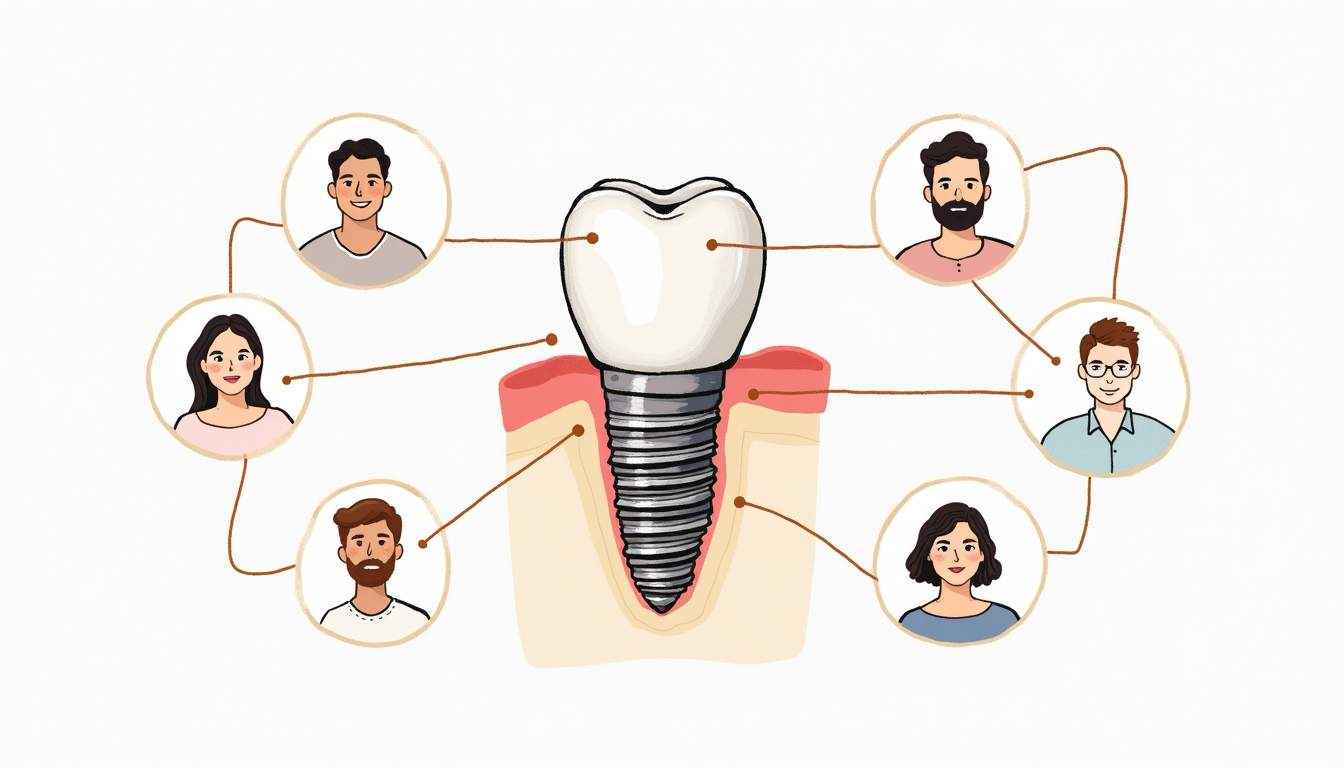
Imagine biting into a crisp apple without hesitation, flashing a confident smile, or speaking without worrying about a loose denture. For many people with missing teeth, these simple pleasures can feel out of reach. Dental implants promise to restore not just function but also confidence. But are they truly the most reliable option?
Understanding Dental Implants: What Are They?
Dental implants are titanium posts surgically placed into the jawbone to serve as artificial tooth roots. Once integrated with the bone, they provide a sturdy foundation for crowns, bridges, or dentures. Unlike traditional dentures or bridges, implants aim to mimic the natural tooth structure both above and below the gum line.
This integration process, known as osseointegration, is key to their stability. The bone grows around the implant, locking it in place. This biological bond is what sets implants apart from other tooth replacement options. The success rate of dental implants is impressively high, often reported to be around 95%, making them a reliable choice for those seeking long-term solutions for tooth loss.
How Implants Compare to Other Tooth Replacement Methods
Bridges rely on adjacent teeth for support, often requiring those teeth to be filed down. Dentures rest on the gums and can slip or cause discomfort. Implants, in contrast, stand independently and help preserve jawbone density by stimulating the bone, preventing the shrinkage that often follows tooth loss. This preservation of bone structure is crucial not only for maintaining facial aesthetics but also for overall oral health, as a healthy jawbone supports the surrounding teeth and prevents further dental issues.
Moreover, dental implants can significantly enhance quality of life. Patients often report improved confidence and comfort, as implants function much like natural teeth, allowing for easier eating and speaking. Unlike dentures, which may require adhesives and can be cumbersome, implants provide a permanent solution that eliminates the worry of slippage. With proper care and regular dental check-ups, implants can last a lifetime, making them a worthwhile investment for many individuals looking to restore their smiles.
Reliability in Function and Longevity
One of the main reasons dental implants have gained popularity is their durability. When properly cared for, implants can last decades, even a lifetime. This longevity surpasses that of bridges and dentures, which may need replacement or adjustment every 5 to 15 years. The materials used in dental implants, typically titanium or zirconia, are biocompatible and resistant to corrosion, ensuring that they can withstand the daily wear and tear of chewing without degrading over time. This resilience not only provides peace of mind for patients but also contributes to their overall satisfaction with the procedure. To learn more about durable and long-lasting dental implants, visit Indental Castle Hill.
Functionally, implants restore nearly full chewing power. Patients often report being able to eat a wider variety of foods without pain or discomfort. This can have a significant impact on nutrition and overall quality of life. The ability to enjoy foods that were once difficult to consume, such as crunchy vegetables or tough meats, can lead to a more balanced diet and improved health. Furthermore, the confidence that comes with having a complete smile can enhance social interactions and self-esteem, allowing individuals to engage more freely in social situations without the fear of dental issues.
Success Rates and Factors Influencing Reliability
Dental implant success rates hover around 95% to 98%, making them one of the most predictable dental procedures. However, success depends on several factors:
- Bone Quality and Quantity: Adequate bone is essential for implant stability. Bone grafting may be necessary in some cases. The process of osseointegration, where the implant fuses with the jawbone, is crucial for long-term success, and sufficient bone density is vital for this process to occur effectively.
- Oral Hygiene: Good daily care reduces the risk of peri-implantitis, an infection that can compromise implant stability. Regular dental check-ups and professional cleanings are also important to monitor the health of the gums and surrounding tissues, ensuring that any issues are addressed promptly.
- Overall Health: Conditions like diabetes or smoking can affect healing and implant success. Patients with chronic health issues may require additional monitoring and tailored treatment plans to optimize their outcomes. Lifestyle choices, such as maintaining a balanced diet and quitting smoking, can significantly enhance the success of dental implants.
In addition to these factors, the skill and experience of the dental professional performing the procedure play a critical role in the success of dental implants. Advanced training and familiarity with the latest techniques and technologies can lead to better outcomes. Moreover, patients are encouraged to engage in open communication with their dental team, discussing any concerns or questions they may have throughout the process. This collaborative approach not only fosters trust but also helps ensure that patients are fully informed and comfortable with their treatment plan.
Considering the Costs and Time Investment
Dental implants often come with a higher upfront cost compared to bridges or dentures. The surgical procedure, implant components, and restoration all contribute to the price. Additionally, the process can take several months, including healing time after implant placement. This healing phase is crucial, as it allows the implant to integrate with the jawbone, a process known as osseointegration, which is vital for the stability and longevity of the implant.

While the initial investment may seem steep, many patients find that the long-term benefits justify the expense. Fewer replacements, better function, and improved oral health can offset the cost over time. Moreover, dental implants can enhance one’s quality of life, allowing individuals to eat a wider variety of foods without discomfort and improving their confidence when smiling. The durability of implants, which can last a lifetime with proper care, further emphasizes their value as a long-term solution for tooth loss.
Insurance and Financing Options
Insurance coverage for dental implants varies widely. Some plans cover a portion, while others consider implants cosmetic and exclude them. Many dental offices offer financing plans to make treatment more accessible. These plans often include monthly payment options that can help patients manage the costs more effectively, allowing them to receive the care they need without the burden of a large upfront payment.
In addition to traditional insurance, patients may also explore health savings accounts (HSAs) or flexible spending accounts (FSAs), which allow them to use pre-tax dollars for medical expenses, including dental treatments. Some clinics even partner with third-party financing companies that specialize in dental care, providing patients with a range of payment options tailored to their financial situation. This flexibility can make a significant difference, enabling more individuals to choose dental implants as a viable solution for restoring their smiles and oral function.
Potential Risks and Complications
No medical procedure is without risks. Dental implant surgery carries potential complications such as infection, nerve damage, or sinus problems, especially if the implant is placed in the upper jaw.

However, these risks are relatively low when treatment is performed by experienced professionals. Proper planning, imaging, and patient selection play crucial roles in minimizing complications. For instance, advanced imaging techniques like 3D cone beam computed tomography (CBCT) allow for a more precise assessment of the jawbone structure, which helps in determining the optimal placement of the implant and reducing the likelihood of complications.
Managing Expectations and Maintenance
While implants are durable, they require commitment. Regular dental visits, meticulous oral hygiene, and avoiding harmful habits like smoking are essential to maintain implant health. Patients should also be aware of the importance of a balanced diet rich in vitamins and minerals, as this can significantly influence healing and the longevity of the implant. Nutrients like calcium and vitamin D are particularly crucial for bone health, which is essential for the stability of the implant.
Patients should understand that implants are not immune to problems. Peri-implantitis, a form of gum disease around implants, can lead to failure if untreated. Early detection and intervention are key. It is advisable for patients to familiarize themselves with the signs of peri-implantitis, such as swelling, bleeding, or discomfort around the implant site. Regular monitoring and professional cleanings can help in identifying issues before they escalate, ensuring that the implant remains a long-term solution for tooth loss.
Who Are the Best Candidates for Dental Implants?
Ideal candidates have good general and oral health, sufficient jawbone density, and no uncontrolled chronic conditions. Non-smokers or those willing to quit smoking have better outcomes.

Age is less of a barrier than once thought; adults of all ages can benefit from implants if their health permits. However, children and teenagers whose jawbones are still growing are typically not candidates.
Alternatives When Implants Aren’t Suitable
For those unable to undergo implant surgery, traditional bridges or dentures remain viable options. Advances in denture technology have improved comfort and aesthetics, though they don’t offer the same bone preservation benefits.
Final Thoughts
Dental implants stand out for their durability, function, and ability to preserve oral health. Their high success rates and natural feel make them an appealing solution for many people with missing teeth.
That said, reliability depends on individual circumstances. Not everyone is an ideal candidate, and implants require a significant investment of time and money. Careful consultation with a dental professional can help determine if implants are the best option based on health, lifestyle, and goals.
Ultimately, dental implants have transformed tooth replacement, offering a reliable and lasting way to regain a confident smile and comfortable bite. For many, they are indeed the most dependable choice.


